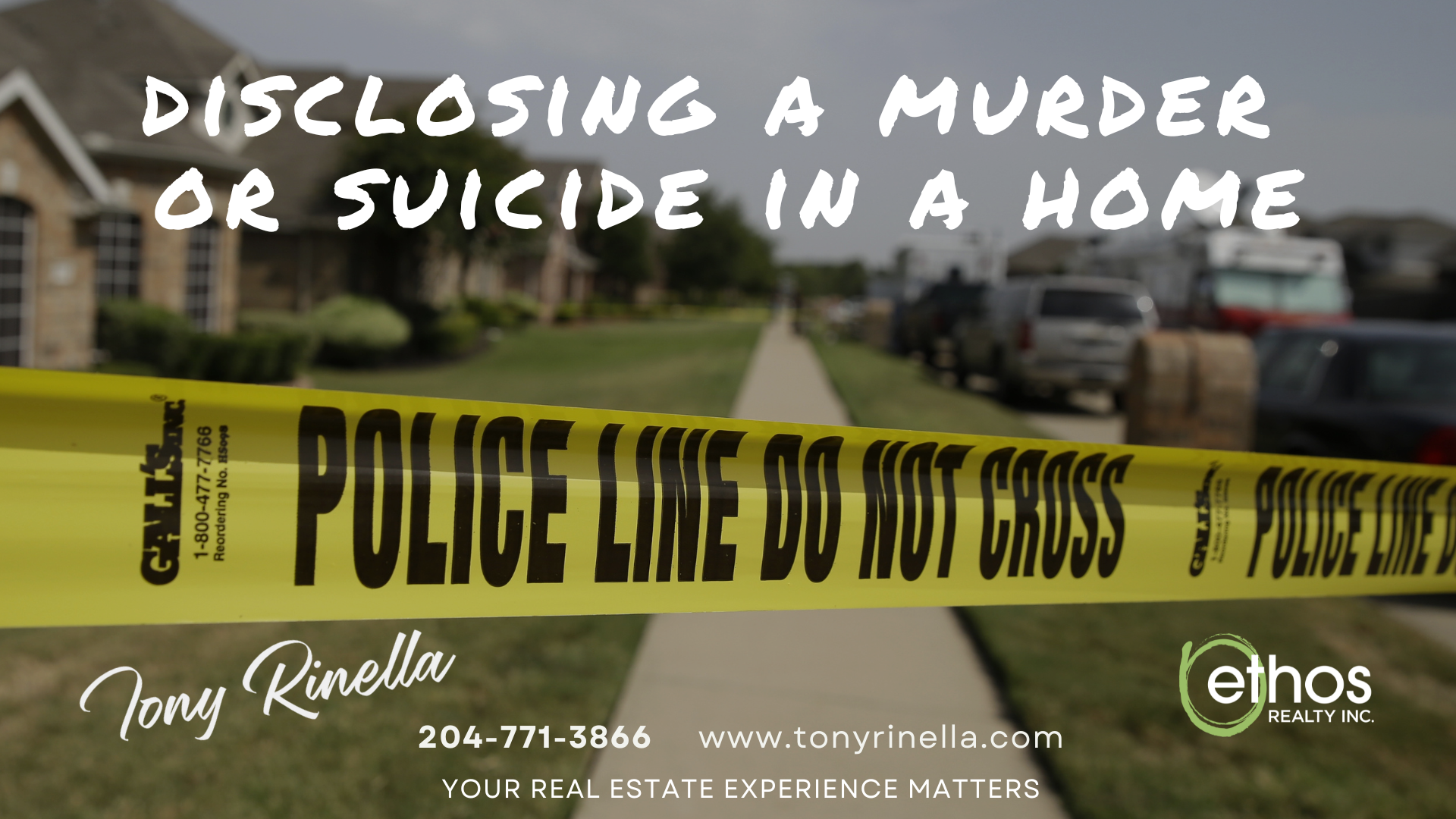I was recently asked by a client what our duty as REATLORS® is to disclose a death, suicide, or murder in a home. The short answer is NO, the REALTOR® nor the Seller have any obligation to reveal ANY death UNLESS it is “specifically” asked by the Buyer. But it must be SPECIFIC!
In Canada, REALTORS® need to act on behalf of their clients “lawful” wishes. If the Seller does not wish to disclose a death, the REALTOR® representing the Seller does not have a duty to disclose. However, you must disclose if a buyer specifically asks for it. For example, if the buyer asks “why the seller is moving” the response can be to downsize, up size, move to another province, or whatever. However, if the buyer specifically asks “ has anyone ever died in the home because of unusual circumstances” then we are obligated to disclose the factual circumstances (to the best of our knowledge). If a Seller does not tell us its difficult to disclose something we do not know.
In some cultures this is a major issue and if you know that it is an issue it is your duty as the Buyer REALTOR® to ask the question. The onus however lies on the buyer to specifically ask “if a death has occurred in the home because of unusual circumstances”. Even if a buyer asks if there are any “latent defects” (i.e., problems that are not visually apparent, even in an inspection), the seller does not have a duty to disclose the death.
Argument can be made that this is “misrepresentation by omission” however court rulings have been made in the past and the judgement came back that “Murder on the Property Doesn’t Affect the Use Value of a House, and so Sellers Do Not Need to Disclose Unless Specifically Asked About A Death”. The following is the actual wording of a judgement that occurred in British Columbia:
“At the Court of Appeal, the sole issue before the court was the issue of fraudulent misrepresentation by omission. The Court concluded that an omission will not constitute a misrepresentation unless it relates to a material fact. The Court further concluded that the failure of the vendor to disclose facts relating to a subjective consideration of the purchaser (for example, the death of a person on the property) cannot constitute a misrepresentation unless the purchaser has made the vendor aware of the purchaser’s subjective concern. The Court found that absent a specific question there was no way for the vendor to know of the purchaser’s particular sensitivity to an event which occurred two years earlier and did not affect the quality of the house or its usefulness (para 49). In the context of the law of fraudulent misrepresentation, a representor cannot be held liable for fraudulent misrepresentation by omission for failing to disclose a fact which the representor did not know was material to the representee. (B.C Court, Dvorak 2019: 39)”
Judges interpret laws differently in each province but often refer to judgements in other provinces and the results are quite similar. According to specifics of a case in Quebec, they also refered to the precedents set by previous judgements in other provinces. The case involved a seller’s son that had committed suicide in the house, which the buyer found out subsequently after they had moved in. They filed a lawsuit for damages and the Judge dismissed the claim, making the following remarks:
“A death, suicide, or even a murder in a house cannot be considered to be something the seller is obliged to disclose to the buyer, just as there is no obligation to disclose domestic violence, trespasses, births, marriages, baptisms, or other life events, whether happy or sad, that may have occurred there.”
In conclusion when it comes to any death in a home, be it violent, or otherwise it is extremely difficult to determine where to draw the line. Setting a judgement in favour of a death disclosure would be detrimental to the REAL ESTATE industry as a whole and would greatly impact the buying and selling of homes.
If there was a Duty to Disclose, Sellers would then be required to disclose all levels of Deaths. This would then lead to the disclosure of other levels of violence or domestic arguments that caused the death in the home.
Eg :
“How did it occur”?
“Was it a health issue”?
“Did they die in their sleep”?
“Was the death a suicide”?
“Was it Murder”?
This would complicate matters further and could lead to the disclosure of divorce, separation, financial troubles, and host of other issues that can be interpreted by a buyer as “affecting the value” of the home.
Therefore, under current laws a seller is not obligated to disclose any reason for selling a home, unless it affects the usefulness of the property. Since a death does not affect its usefulness value, there is no duty to disclose. The doctrine of Caveat Emptor (Buyer Beware) is still at the forefront, and it is the duty of the purchaser to specifically ask the question if it matters to them. If the question is asked specifically, then and only then, does the seller have a duty to disclose the facts.
If you have further questions or concerns regarding buying or selling a home, feel free to contact me and I will do my best to answer them or find out the answer for you.
Tony Rinella – B.A. Urban Studies
Ethos Realty
204-771-3866
YOUR REAL ESTATE EXPERIENCE MATTERS
